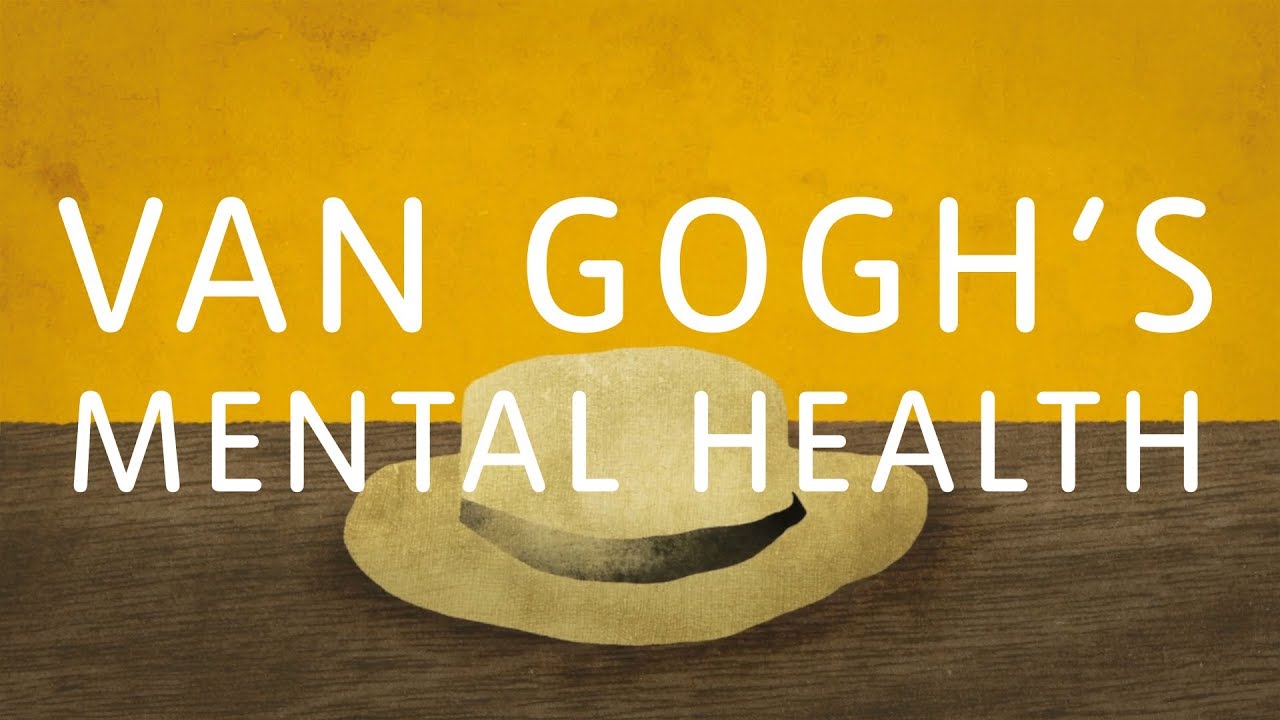We explore how it is no longer useful to think of Vincent van Gogh’s talent as a result of his poor mental health.
This video contains language used by Van Gogh to describe his mental health. The way we speak about mental health has progressed since then and is always developing the more we understand.
This video was produced in collaboration with Mind, a charity that supports those with mental health problems.
If you are affected by the content of this video please visit Mind’s resources page for more information and support: https://www.mind.org.uk/
Subscribe for weekly films: http://goo.gl/X1ZnEl
source

Suicide? Wasn’t he shot and killed?
its not a myth. its fact. from my own experience my best work as an artist was made when i was experiencing the most pain. it drives me to push harder than i did before
who doesn't love being told what mental illness is and is not by people who don't suffer from it themselves? it's for similar reasons that i go around explaining to people what LSD is having never actually tripped myself. doesn't matter, though–i mean well.
you'd think they'd have taught their narrator how to pronounce his name.
It's claimed that van Gogh suffered from ear infections, and this was the cause of his episodes.
Is this the same woman that did the reading of in search of the miraculous?
I’m still wondering if he actually committed suicide if those boys didn’t shoot him by mistake
thank you for this
so you don't subscribe to the theory some teenagers accidentally shot him?
“Frame=Reduce”
After reading Vincent's letters to his brother Theo, I can't but get the impression that he was a sane genius. I just feel that he suffered from depression and anxiety attacks. He put too much pressure onto himself. I also wonder if heavy drinking of Absinthe hurt him too.
We will never know what Van Gogh was experiencing in the mechanism of his mind. Most of us don’t really even have much of an understanding of the patterns and movements of our own minds.
From what you say here (paralysis etc. – first tie I've heard that) it sounds like he had neurological/brain (physical) problems – but at that time these (including epilepsy until recently – and maybe still in some countries?) weren't understood and so were said to be 'madness'. The same is true now (I read): many obviously neurological illness/injury/disease are STILL said to be 'mental health problems' = because of doctors' ignorance, that it's easy to 'diagnose' instead of doing expensive tests which many don't have insurance cover for – but also if insured the insurers prefer these 'diagnoses' = cheaper – and I think some policies don't cover 'mental health' – though how on earth you can (and why would you want to) separate mental and physical health must be impossible because the brain controls not only the whole body but also our thoughts and feelings. Some people become 'savants' (genius) after a brain injury (and illness/disease), some people discover/achieve unusual strengths in art, music , maths etc. after a stroke or other brain injury = maybe Vincent had one of these things happen to his brain but at that time no understanding of how eg viruses can affect the brain and no MRIs and just said to be 'mad'. His great art was a product of him and his brain, result: genius! Got to stop: getting scrambled due to my brain injury!
Sanity is a comparative understanding of one with the rest of the population , 🤔How would you say we r all saine.? WE ,the people of the world fought 2 world wars ,killed each other in great efficiency. With global warming Heated up and Destroyed the workings of this planet .
Yet we , each one of us ,r MAD enough to claim that we r sain and that the geniuses of Vincent as mad , shame upon us
Art is madness fool! I spent 4 years of my life and payed 50k to learn that lesson.
🦋🐻🐱🌟🌜 Just Want 2 Remember He Was So Very Talented… 🦋🌟 If This Video HELPS Anyone, That's Positive… 🌟🌜🦋🐻🐱🌟
Vincent is one of my very favorite artists. I do believe his condition is inextricably bound up with his paintings, though. We couldn't have had one without the other.
Where are these writings that they're referencing? If he kept a diary why hasn't it been published?
I feel this video neglects the fact that if he hadn’t had mental health issues he maybe wouldn’t of needed painting to distract or be a therapy to his illness, I don’t think creativity made him unwell, and Furthermore don’t think you need to be unwell to be an artist. But to say you shouldn’t acknowledge he’s illness, is putting shame back on people with mental illness, when for me personally, knowing that he struggled the way I and many others have, it’s a comfort, I feel not alone. This video avoids that, and doesn’t really explain his label to be a myth, more that they don’t want people to use it, we should never glorify having mental illness, but to not acknowledge that it was a large part of him and his work is not acknowledging the emotional context of the pieces.
That’s it ?
Wonderful, thank you